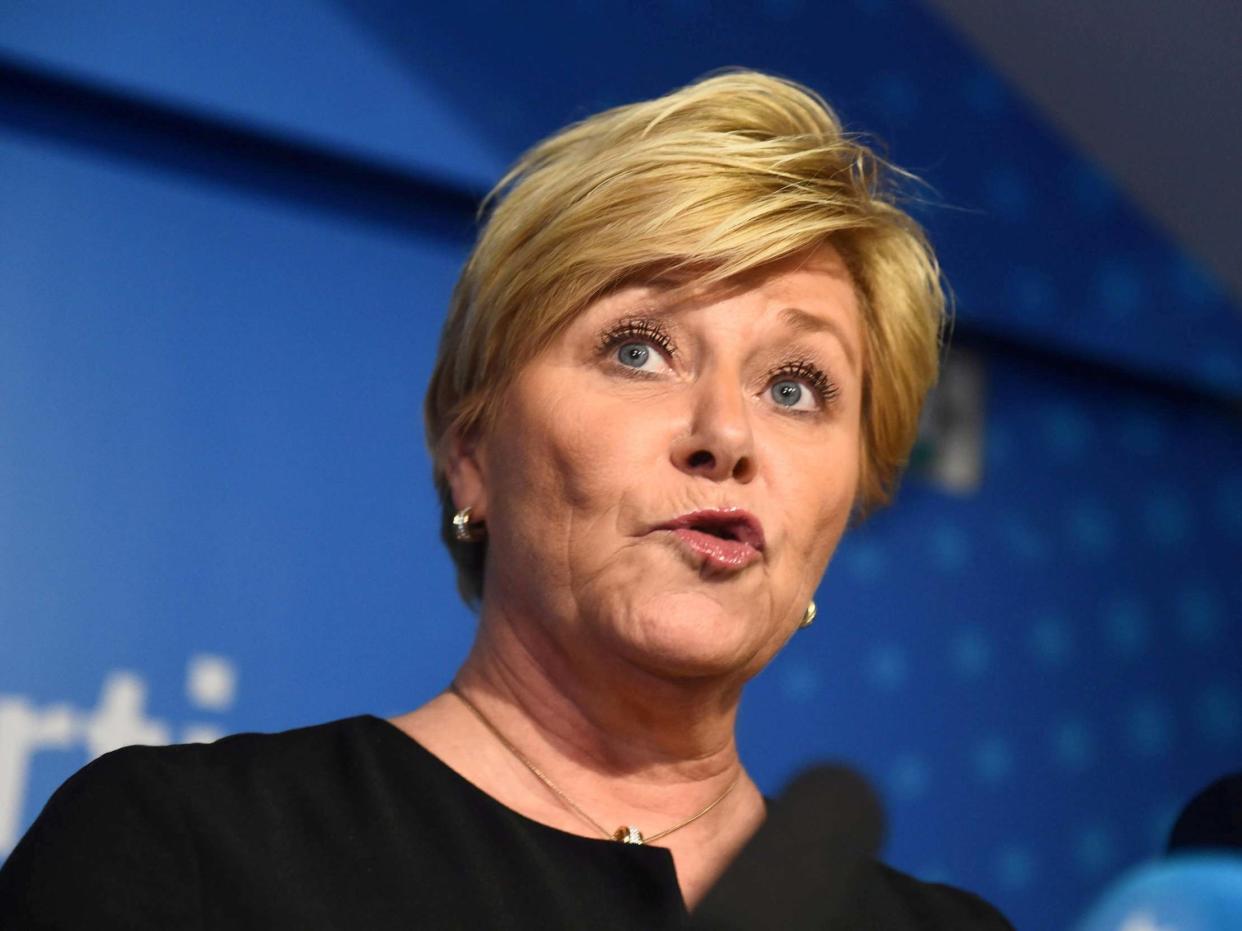Norway populist party quits government over return of suspected ‘Isis bride’ to country

Norway’s populist party has quit the country’s governing coalition over a decision to allow a suspected “Isis bride” to return from Syria.
Finance minister Siv Jensen said there had been “too many compromises” as she announced her right-wing Progress Party would step down.
The move means Conservative prime minister Erna Solberg no longer has a parliamentary majority, which could make the country more difficult to govern.
However she is expected to remain in office as head of a minority coalition.
Ms Jensen’s departure was triggered by the decision to help a Norwegian woman and her two children return from Syria so one of the youngsters could receive medical treatment.
The woman, who left Norway in 2013, was arrested on her return on suspicion of being a member of the Isis terrorist group.
While Progress had offered to help the children, the populist party sought to deny any government assistance for adults seeking to return home after joining Islamist groups abroad or marrying foreign fighters.
Decisions on whether to help women with IS ties return from Syria has caused controversy in Europe, including in Finland where the recently appointed government settled on a compromise to decide each case individually.
The Norwegian woman, who has not been named, has denied the charges against her and will fully cooperate with police during interrogation, her lawyer has said.
Ms Jensen’s exit, along with six other Progress cabinet ministers, leaves Solberg with a string of posts to fill, including that of oil and energy minister to oversee Western Europe’s biggest oil and gas industry.
Norway’s constitution does not allow early elections, and the next vote for parliament will not take place until September 2021.
All four parties in Ms Solberg’s coalition currently struggle in the polls, including Progress which is stuck at about 10 per cent support, down from more than 20 per cent a decade ago.
Ms Jensen recently admitted the government looked “grey and dull”, with the party’s image diluted by compromises with centrist parties that do not share its penchant for tax cuts and less immigration.
Additional reporting by Reuters
Read more
Isis bride begs to come home ‘to face justice in a British court’


